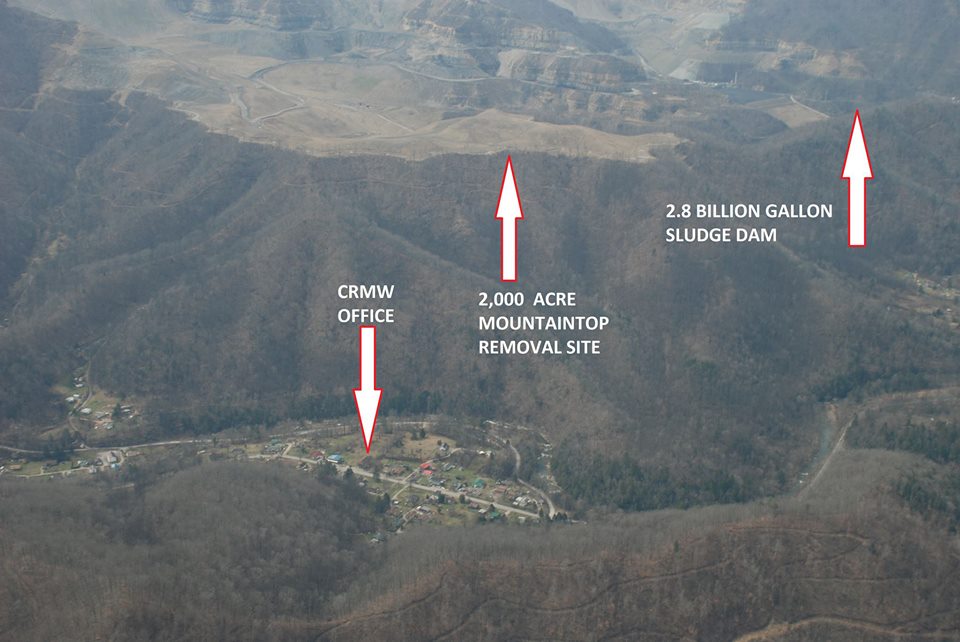Janice Nease was a pioneer in building momentum for stakeholders’ rights in the American relationship to fossil fuel extraction. She founded Coal River Mountain Watch, a leading organization for the defense of the natural environment, as well as the interests of families, communities and sustainable economics, across Appalachia.
Today, Coal River Mountain Watch announced on their Facebook page that Ms. Nease had passed away, as the result of a heart attack. More information is said to be forthcoming.
Coal River Mountain was slated for total mountaintop removal, when Nease and a courageous and determined group of activists began the movement to resist the destruction of the mountain and the surrounding landscape. The impact of total mountaintop removal would be the destruction of not only all natural ecosystems covering the mountain’s summit, but also of all those ecosystems in the surrounding valleys.
One of the most dangerous long-term impacts of mountaintop removal is the pollution of entire watersheds with hazardous materials that would not otherwise leach into groundwater or river water, and which, due to lax regulatory precedents, can be difficult to penalize or prevent.
Coal River Mountain Watch has made a vast amount of research available to citizens, so they can respond to industry encroachment into their own living environments. Among these are:
- A Guide to Citizen Enforcement Options
- An extensive bibliography detailing the negative impacts of mountaintop removal mining
- A Guide to Major Environmental Laws and Statutes
- Contact information for relevant oversight agencies
The following is an excerpt from one of Nease’s essays, posted by Coal River Mountain Watch, in honor of her legacy:
I am a child of Appalachia, and I say that with pride.
I was born and raised in a coal camp up Cabin Creek Hollow near Kayford, West Virginia. As was often the practice then, my family shared a house with my paternal grandparents. The home in which I was born is still standing; but it is standing in a ghost town. Little is left of my hometown but the footprints of my ancestors and my memories.
As a small child I thought the mountains were timeless; now I must face the cruel fact that they may not be. The mountains played an important part in the daily life of those who lived in the hills and hollows of West Virginia. They provided recreation and food to supplement our meager income. They also provided medicinal herbs to cure us when we were ill and a place to bury our dead when it was time for them to go. They offered us solace when times were hard and inspiration when we needed to refresh our soul. The mountains also reminded us of who we were and upon whose earth we walked. The mountains surrounded our modest homes with beauty. Most importantly, they gave us our sense of time and our sense of place. …
The future of Appalachian culture is clouded. There are those who say the culture is dying. I say that the culture is still alive and will remain so if we honor the values, customs and commitment of our ancestors. If we do nothing, it will surely die.
The greatest danger to Appalachian culture is mountaintop removal mining. This egregious system of mining is destroying both the physical and human environment throughout the southern coalfields. Mountaintop removal mining makes moonscapes out of mountains, buries streams under tons of rubble, contaminates drinking water, creates flooding, demolishes one of the oldest and most diverse temperate forests and wildlife habitats, causes blasting damage to residents’ homes, destroys our mountain culture and heritage and permanently destroys entire communities.
The defense of Coal River Mountain is no small undertaking. The process of strip mining is underway, but those committed to elevating the voices of stakeholders resist from the very site they are trying to protect. The following is a photo posted by Coal River Mountain Watch, showing the proximity of their offices to the environmental and public health perils of the mountaintop removal project:
In honor of Janice Nease’s legacy, please make contact with Coal River Mountain Watch and do what you can to help their efforts to protect and improve human health in the region and to save the mountain and its surrounding valleys and watersheds.
- Click here to support Coal River Mountain Watch
- Click here to help pass the Appalachian Community Health Emergency (ACHE) Act
